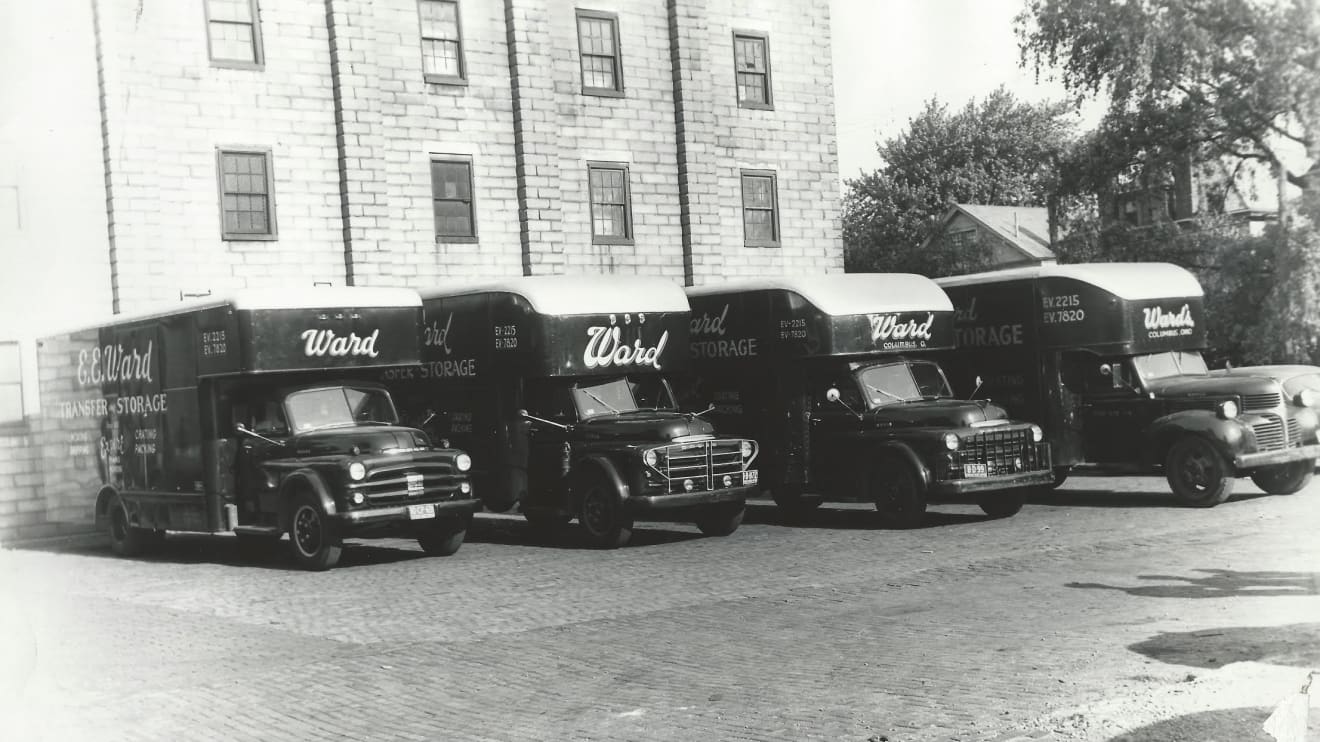This post was originally published on this site
Sometime in the mid-19th century, John T. Ward, a Black man from Virginia who had relocated to Central Ohio, began transporting escaped enslaved people via the Underground Railroad. He relied on two horses and a wagon, covering a critical 12-mile stretch of the network to freedom.
With the end of slavery, the Railroad was no more. Still, Ward understood how transportation worked, so he decided to start a company devoted to moving goods.
In 1881, the Ward business was born — and it hasn’t stopped moving since.
As Americans recognize a range of important figures during February’s Black History Month celebration, it’s worth learning the story of Ward and his company, which was later christened E.E. Ward Transfer and Storage Co., after John’s youngest son and business successor, Edgar Earl Ward. In fact, E.E. Ward Moving & Storage, as it’s now called, is the oldest continually operating Black-owned business in the country, as duly recognized in the Congressional Record.
Think about it: This is a 141-year-old company, based in Columbus, Ohio, that has seen its way past two World Wars, a Great Depression and a Great Recession. This is a company that has survived — indeed, prospered — during years in which the U.S. faced huge issues of racial inequality.
The reason for its continued success? Dominique Brooks, who now co-owns the business with her husband, Brian Brooks, puts it this way: “Integrity is a huge part of our business. It’s not that we are a Black-owned business. … We are a business that provides quality service.”
That’s not to say E.E. Ward isn’t conscious of its roots and ties to the Black community. “It’s a huge feeling of pride and honor,” says Brian, 52.
The Brookses took over the business in 2001. And while they don’t have a blood connection, there’s a connection nevertheless: Brian’s father knew the Ward family and worked as the attorney for Eldon Ward, the family member who ran the company from 1945 to 1996. So when the Wards were looking for new ownership, Brian, who has a business background in the telecom, entertainment and real-estate industries, was a logical choice to approach. (He also was “family” in that Eldon was his godfather.)

A line of E.E. Ward trucks from decades ago.
Courtesy E.E. Ward Moving & Storage
The Brookses have expanded their privately held business, which serves both residential and commercial clients, to include offices in North Carolina. They have also seen their annual revenue grow from the low six figures to high seven figures, according to Brian. The company has won industry accolades, too — most recently, it was named North American Van Lines’ Agent of the Year in 2021.
“‘You’re never going to achieve a diversity goal if you’re not willing to make change.’”
But the Brookses say they have also faced their share of challenges as a Black-owned business, even in spite of public and other programs aimed at boosting such enterprises. Brian says he feels he often loses out on commercial contracts because companies are still hesitant to take a chance on a minority-owned business, even if it’s one as successful and established as his.
“You’re never going to achieve a diversity goal if you’re not willing to make change,” Brian says of the need for companies to work with suppliers and contractors owned by people of color. “We’re still facing the challenge of we’re not good enough or worthy of the business. And that’s a hard pill to swallow when you have a company that’s been around for 141 years.”
He also says securing credit has not always been easy, though the situation has improved in recent years.
E.E. Ward isn’t alone in dealing with these issues, says J. Averi Frost, the executive director of the Central Ohio African American Chamber of Commerce. “Access to capital is the most paramount challenge” facing Black-owned businesses, she says.
At the same time, she applauds E.E. Ward for its perseverance through the decades: “Their resilience and stick-to-it-ness is very inspirational.”
Studies suggest Black-owned businesses saw an uptick in customers after the Black Lives Matter movement gained fresh momentum in the wake of George Floyd’s murder, as consumers looked to show support for Black communities in ways beyond taking part in racial-justice protests.
At the same time, the pandemic has hit minority-owned businesses hard. A Federal Reserve Bank survey, for example, found that 67% of Black- and Asian-owned firms were forced to slim down operations in 2020. By contrast, 54% of white-owned firms had to scale back.
The Brookses feel their success isn’t so much about being Black-owned as it is about being able to deliver what their customers demand. They note the company has a long history of working with clients of all races and colors — going back to the early 1900s, when it was known for delivering Steinway pianos to well-heeled customers.
Rick Kirk, a real-estate developer in Columbus, says his family has used E.E. Ward’s services for decades. “It’s just because they do a good job,” says Kirk.
E.E. Ward has maintained a connection to the Black and broader Columbus communities through charitable endeavors. For example, it supports a local program to teach children from underprivileged backgrounds — many of whom come from communities of color — how to swim. The program honors Eldon Ward, who was an avid swimmer.
E.E. Ward has also celebrated its 141-year history in a rather novel way: by launching a fashion line, 1881 Apparel, whose name refers to the year the moving company started. The entrepreneurial spinoff stems from the fact that Dominique, 38, is also a former model who appeared as a contestant on “America’s Next Top Model.”
So even though E.E. Ward is in the business of moving goods, she says, a clothing brand seemed a way to make a statement about the company’s endurance.
“I just feel a huge responsibility to ensure this legacy is never forgotten,” says Dominique.



